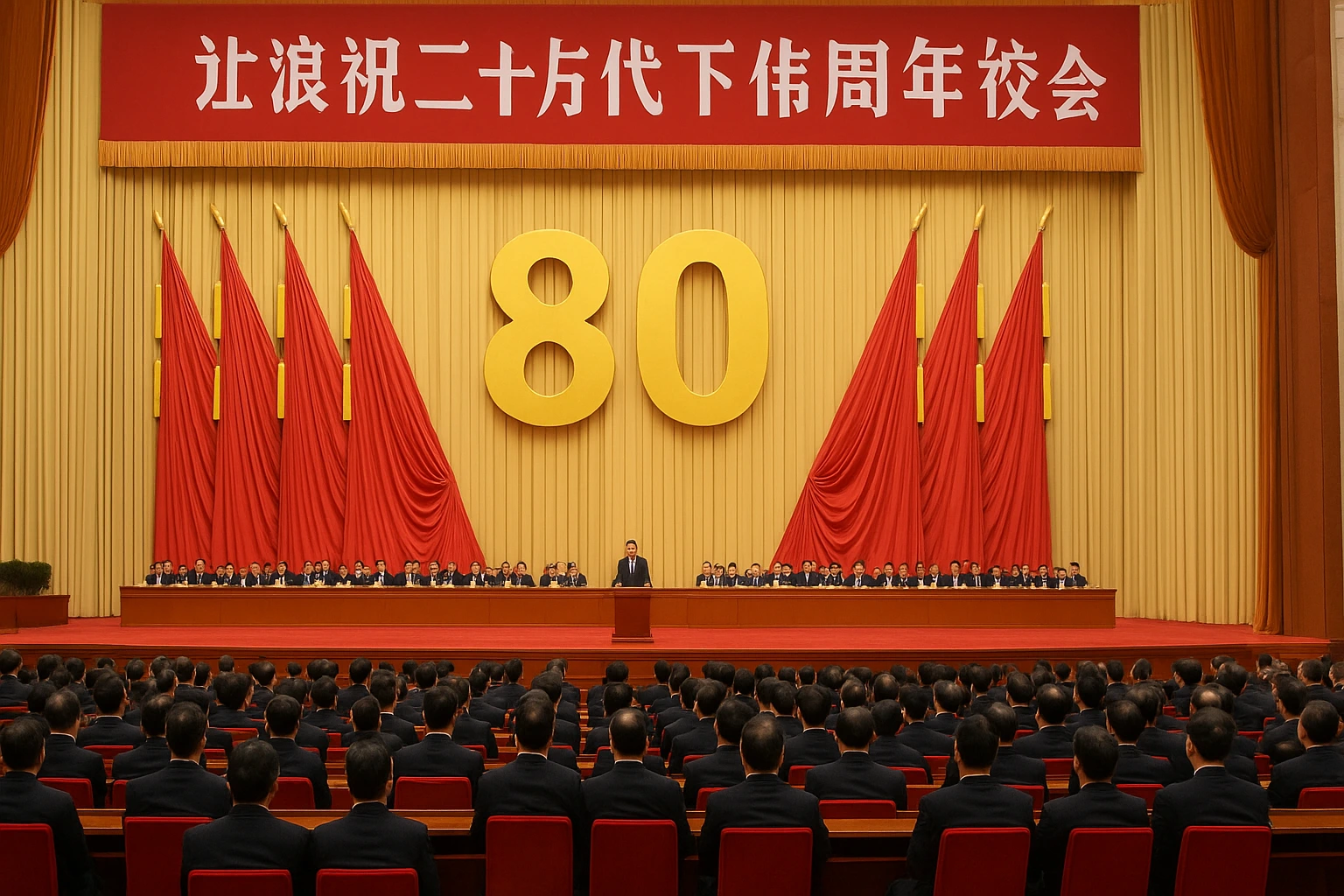BEIJING (TECHY QUANTUM) — China is preparing to mark the 80th anniversary of Taiwan’s retrocession to Chinese rule with a celebration at Beijing’s Great Hall of the People this weekend, according to government sources.
The event comes amid heightened tensions between Beijing and Taipei over their divergent interpretations of the handover following World War II.
The term “retrocession” refers to Taiwan’s handover from Japan to the Republic of China (ROC) in 1945, following Japan’s defeat in World War II. China and Taiwan both acknowledge this transfer, but they interpret it differently.
Beijing regards the retrocession as the return of Taiwan to Chinese sovereignty. Taipei, however, emphasizes that it was the ROC, not the People’s Republic of China (PRC), that regained the island after Japan’s surrender.
The PRC, founded in 1949 after the Chinese Civil War, claims Taiwan as part of its territory. Meanwhile, the ROC government relocated to Taipei and continues to administer Taiwan, asserting its sovereignty.
Zhu Fenglian, spokesperson for China’s Taiwan Affairs Office, told reporters in Beijing that the anniversary celebration would highlight what China views as a “great triumph forged through the relentless and bloody struggles of all Chinese people, including our compatriots in Taiwan.”
She added that invitations had been extended to people from Taiwan to attend the event, though no details were provided on which Chinese leaders would be present.
Taiwan’s government has prohibited its officials, educators, and students from participating in any Chinese hosted events marking the anniversary. Taipei has accused Beijing of attempting to distort history to reinforce its claim over Taiwan.
Chiu Chui cheng, head of Taiwan’s Mainland Affairs Council, criticized China’s approach, saying, “Beijing has repeatedly fabricated narratives to claim that Taiwan is part of the People’s Republic of China. Taiwan’s history and identity are separate, and we will not allow them to be misrepresented.”
Taiwanese authorities have urged citizens to refrain from attending events in China, stressing that national interests and historical accuracy take precedence over participation in foreign celebrations.
Experts say the anniversary illustrates how historical narratives are leveraged for political purposes. Dr. Li Wei, a political analyst at National Taiwan University, said, “The retrocession anniversary has become a symbolic battlefield for competing narratives.
Beijing seeks to unify historical memory under the PRC framework, while Taiwan aims to preserve a distinct national identity that reflects its democratic and sovereign status.”
Professor Zhang Jian, a historian at Fudan University in Shanghai, noted, “Beijing’s celebration is not only a remembrance of history but also a statement of continued sovereignty claims over Taiwan. For China, the retrocession signifies the end of foreign domination and the restoration of national unity.”
Taiwan had been under Japanese colonial rule since 1895, spanning five decades. The end of World War II brought the handover of the island to the ROC, which had been one of the major Allied powers.
Four years later, the PRC was established on the mainland, and the ROC government relocated to Taiwan, continuing its administration there.
Since then, Taiwan has developed its own democratic system, thriving economy, and international relationships, creating a clear separation from the PRC.
These developments have intensified the disputes over how historical events such as the retrocession are interpreted and commemorated.
Reactions from residents in both Taipei and Beijing highlight contrasting perspectives. In Taipei, Lin Mei, a 35 year old teacher, said, “It’s important that Taiwan preserves its own version of history.
Beijing’s narrative ignores the distinct experience of our people.” Chen Wei, a 28 year old university student, added, “We acknowledge the historical events, but it is equally important to recognize Taiwan’s current political reality.”
In Beijing, residents generally viewed the event as a moment of national pride. Wang Jun, a 50 year old retiree, said, “This celebration reminds us of our country’s strength and the sacrifices made to reclaim our territories.”
Others expressed caution, such as Zhang Li, a 40 year old office worker, who said, “I hope the event does not escalate tensions with Taiwan and that peaceful dialogue continues.”
The anniversary celebration is unlikely to resolve longstanding tensions between China and Taiwan. Beijing continues to assert its claim over Taiwan, while Taipei emphasizes its sovereignty and independent governance.
Analysts warn that differing interpretations of historical events, such as the retrocession, remain a flashpoint in cross strait relations.
Dr. Li Wei observed, “Unless there is meaningful diplomatic engagement, disputes over history and sovereignty will persist. Anniversaries like this often serve more as political statements than opportunities for reconciliation.”
Professor Zhang Jian added, “The event is as much about modern politics as it is about historical commemoration. Beijing aims to send a message to both domestic and international audiences that Taiwan is integral to Chinese identity and unity.”
The 80th anniversary of Taiwan’s retrocession highlights the enduring complexities of China Taiwan relations. The Beijing celebration, coupled with Taiwan’s prohibition on participation, underscores the divergent historical narratives and ongoing sovereignty disputes.
As both sides navigate these tensions, the anniversary serves as a reminder that cross-strait relations remain deeply influenced by historical memory, national identity, and political claims.
While the celebration in Beijing commemorates the past, it also reflects unresolved questions about Taiwan’s present and future status.
